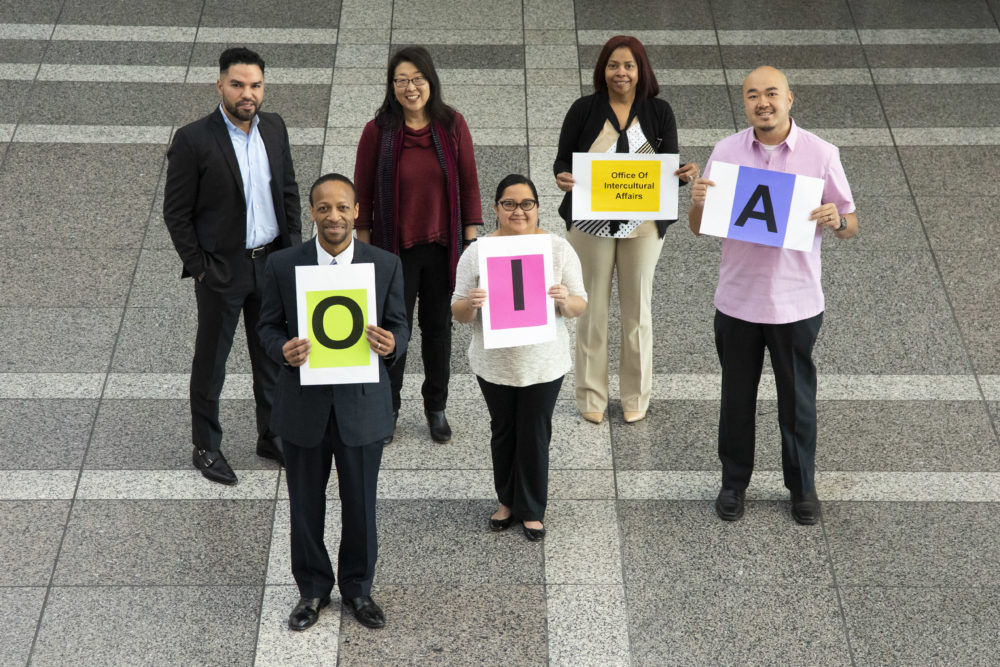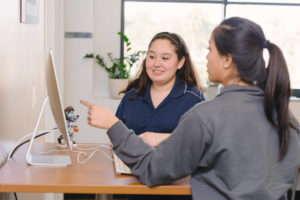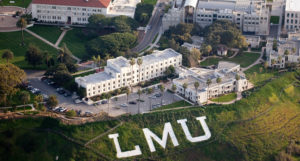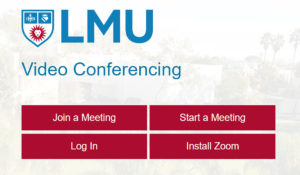Cabinet Corner is a periodic feature of LMU This Week where the university’s executive leaders share their perspectives with the community. The President’s Cabinet will provide updates on initiatives, policies, events, challenges, and areas of interest.
Jennifer Abe, interim special assistant to the president for intercultural affairs, writes:
How might we deepen our understanding of inclusive excellence at LMU as we live into President Snyder’s challenge to “create the world we want to live in”? Inclusive excellence is the idea that in order to be excellent as universities, we must be diverse. I first arrived at LMU as a young assistant professor in psychology in 1994, as a “target of opportunity” hire. One early comment made to me by a now-dear colleague was “I don’t usually believe in affirmative action, but you are the best thing that has happened to the department in a long time.”
This dual-edged statement was meant as a sincere compliment, but reflects a long-standing tension in the perception of the relationship between quality and diversity in higher education. Nonetheless, an increasing body of research indicates that diverse campus communities, including the presence of more faculty of color, are associated with positive outcomes for all students – white students and students of color.[i] Inclusive excellence, however, is about much more than hiring a diverse faculty. A report by the Association of Colleges and Universities describes how we must “infuse diversity into recruiting, admissions, hiring; the curriculum and co-curriculum; and into administrative structures and practices” in order to achieve inclusive excellence.[ii] At LMU, we are taking practical steps to bring inclusive excellence into our work lives, such as the Presidential Leadership Summit, and I’ll say more about that later.
This ideal is also integral to our understanding of who we are as a university. A speech that Superior General Arturo Sosa, S.J., gave to an international network of Jesuit universities in Bilbao, Spain, last year can help us appreciate that living fully into our mission also requires a commitment to inclusive excellence. Father Sosa outlined his vision for the important role that Jesuit universities have in contributing to the work of reconciliation and justice in the world. According to him, we must “look at the world and at history … [and] be moved by the cry of the millions of human beings” who suffer as migrants, victims of violence, the poor in need (“who demand”) of justice, and those facing discrimination based on their skin color and religion. In doing so, he challenged us to consider what seeing the world (and being moved) in this way might mean for our work in universities. “From this way of seeing,” he tells us, “the university becomes a project of social transformation (italics in original) to generate a full life”[iii]
His words remind us that whether our work is theoretical or applied; housed in the sciences, humanities, professional schools or the arts; takes place in residence halls, on fields and courts, or in an office — the goal of a “full life” for all requires that we treat the Other with dignity and respect. With an openness and humility that crosses all boundaries and binaries. We are interconnected – wherever we are from, from whatever communities we call our own. As one of my favorite artists sings, “Yo soy aquel que no soy yo” (I am the one who is not me), which is about seeing one’s neighbor, the Other, as oneself.[iv] And if this is how we truly see each other, then how do we equip ourselves and our students with the necessary intellectual tools that will enable us to live out this vision in our society and world?
At LMU, diversity means that is who we are, who gets included in our university community, and indeed reflects the richness of diverse communities around us, regionally, as well as internationally. Inclusion insists that all members of the LMU community are welcome and feel welcomed, have a voice and are able to fully participate in the co-creation of this vision of our world. And equity means that we are committed to building an institution that is ethically and spiritually awake, one that remembers history in its practices, and understands its moral obligation to respond to the realities of societal injustice and their impacts on underrepresented groups in our midst. We want these values to permeate our institutional practices as well as the way that we treat each other, especially those who do not share our perspectives, values, or views of the world.
The Office of Intercultural Affairs (OIA) at LMU is committed to a vision of inclusive excellence in which values of equity (and equity-mindedness), diversity, and inclusion are woven into the very fabric of our institution. Our commitment to inclusive excellence emerges out of a vision where everyone is needed, every group, faith, and culture belongs, and all voices are heard and seen. The particularity, beauty, and even brokenness, of all our identities and belonging contribute to a truer glimpse of the vastness and richness of something much bigger than any of us. Whatever name is given to this, it is a view that we cannot ever hope to attain alone. We need each other.
As a unit integrated across LMU, the OIA uses theory-driven, evidence-based practices to put these values into practice. We facilitate the design, implementation, and evaluation of programs and initiatives that promote inclusive excellence throughout the entire campus community, for faculty, staff, and students. We do so through (a) supporting efforts to recruit, enroll/hire, and retain a diverse campus community; (b) providing leadership development programs that foster an inclusive institutional climate; (c) awarding grants and engaging in research that help re-envision our curriculum and institutional practices, and; (d) implementing campus-wide initiatives that seek to transform our institution.
On March 21, 2019, as part of our current multi-year initiative on implicit bias, OIA invites the entire campus community to participate in its Presidential Leadership Summit on “Being an Active Bystander” from 9 a.m.-noon. During the morning’s presentation and discussion, we will examine how we can notice and develop strategies for stopping implicit bias when we see it happening around us. How can we stop bias and build our community in constructive ways that don’t tear others down? Come join us; click here to register.
And this is just the beginning. As we prepare for new leadership in this area, OIA encourages and supports the many ways in which the LMU community connects with diverse communities in Los Angeles and beyond; through which our faculty, staff, and students wholeheartedly contribute to the work of reconciliation and justice in our world. After all, this is the world we all want to live in.
[i] Hurtado, S. (2005). The next generation of diversity and intergroup relations research. Journal of Social Issues, 61(3), 595-610. https://spssi.onlinelibrary.wiley.com/doi/full/10.1111/j.1540-4560.2005.00422.x
Milem, F., Chang, M. J., & Antonio, A. L. (2005). Making diversity work on campus: A research-based perspective. Retrieved from https://www.aacu.org/sites/default/files/files/mei/MakingDiversityWork.pdf
[ii] Williams, D.A., Berger, J.B., McClendon, S.A. (2005). Toward a model of inclusive excellence and change in postsecondary institutions. Washington, DC: Association of American Colleges and Universities. https://www.aacu.org/sites/default/files/files/mei/williams_et_al.pdf
[iii] Sosa, A. (2018, July). The university as a source of reconciled life. World Meeting of Universities entrusted to the Society of Jesus. University of Deusto, Bilbao, Spain. http://www.sjweb.info/documents/assj/2018.07_SOSA_The-university-as-a-source-of-a-reconciled-life_LOYOLA.pdf
[iv] Vecino by Kevin Johansen (Argentina) https://www.youtube.com/watch?v=e7jNJZuQLLs&list=RDe7jNJZuQLLs&start_radio=1&t=17




